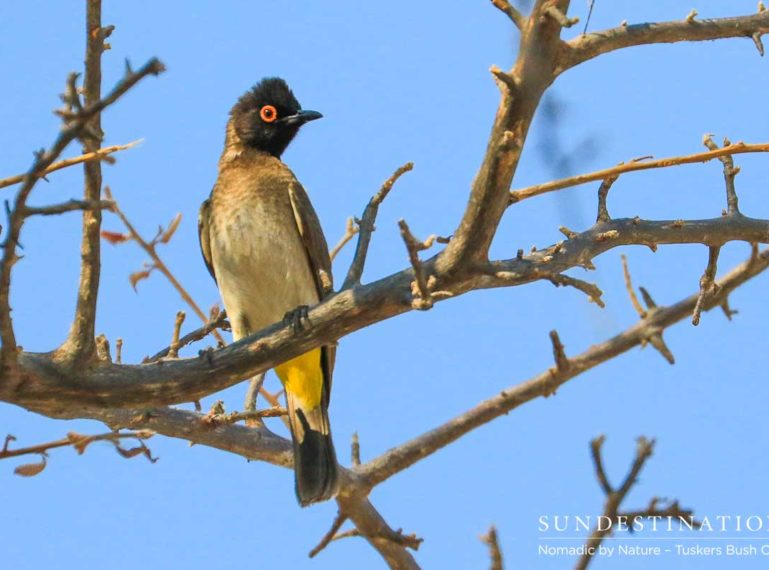
Guest travel blogger Mike McCaffrey (Nomadic by Nature) visited Tuskers Bush Camp and documented his journey with words and images.
Tuskers Bush Camp is that quiet little place in the bush that birders seek. Just sitting on the couch overlooking the waterhole there are yellow-billed hornbills, red-eyed bulbuls, and crimson boubous drinking water and hunting insects around the bush.
However, it is even more rewarding to do a walking safari from camp out to the surrounding pans. Crowned lapwings call their warnings from above, sandgrouse take off in front of your feet, and francolins skirt around the bushes. High overhead eagles and kites survey the land, and magpie shrikes and bee-eaters peer down from their perches.
Although I quite enjoy watching the bee-eaters hunt, my favorite sighting was right in camp. Just before dusk, I was walking around tent five looking for leopard tracks, and found a beautiful barn owl roosting in the roof. Of course he cruised off before I could ready my camera, but it made me feel that there was a lot for birders to explore in the area.
Further, for those also interested in seeing waterfowl, it is easy to take a game drive to the swamps and lagoons in the south of the Okavango Delta. The birdwatching here is great. I recommend staking out under a shady tree around the Bodumatau Lagoon, or taking a silent mokoro (canoe) trip up one of the little channels in the delta.
At the lagoon I saw a number of herons, and carmine bee-eaters. I also got to watch a jacana hunt in the marsh and a pied kingfisher dive bomb for fish. We had some great sightings in the pampas grass during the mokoro ride as well. We saw a fish eagle, and heard barbets calling along the shore. The highlight though was having a Bateleur eagle swoop down along the channel in front of us.
Tuskers Bush Camp is a good base for birders because it is comfortable and private, and allows access to a number of different ecosystems where good sightings are common. So bring your spotting scope, and field guide, and come discover the birds of the Moremi East Wilderness Area.
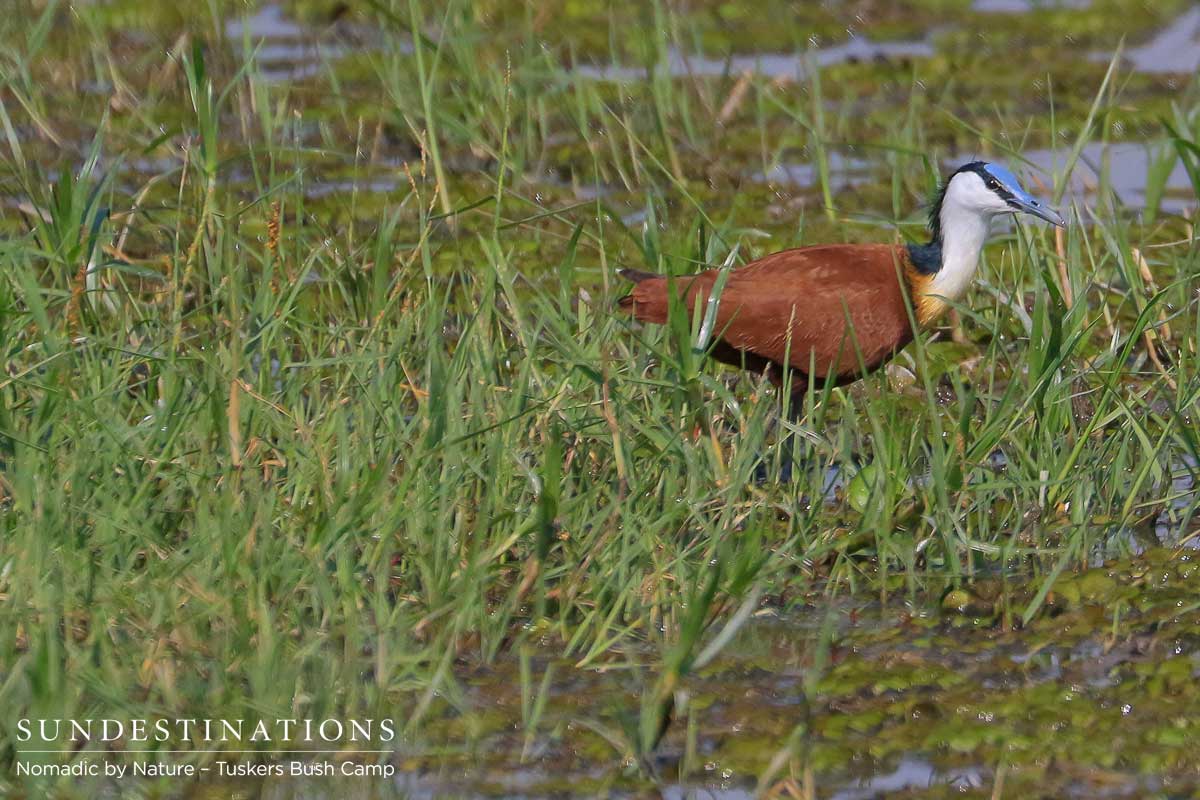
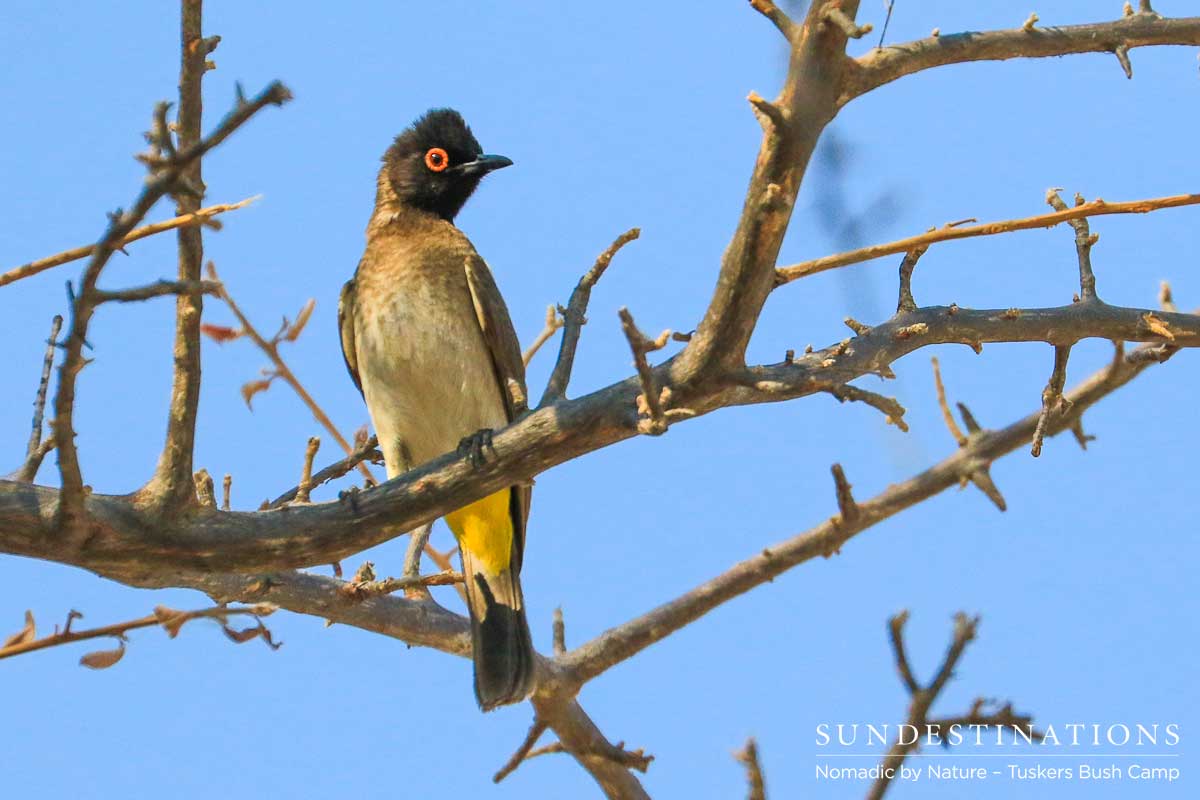

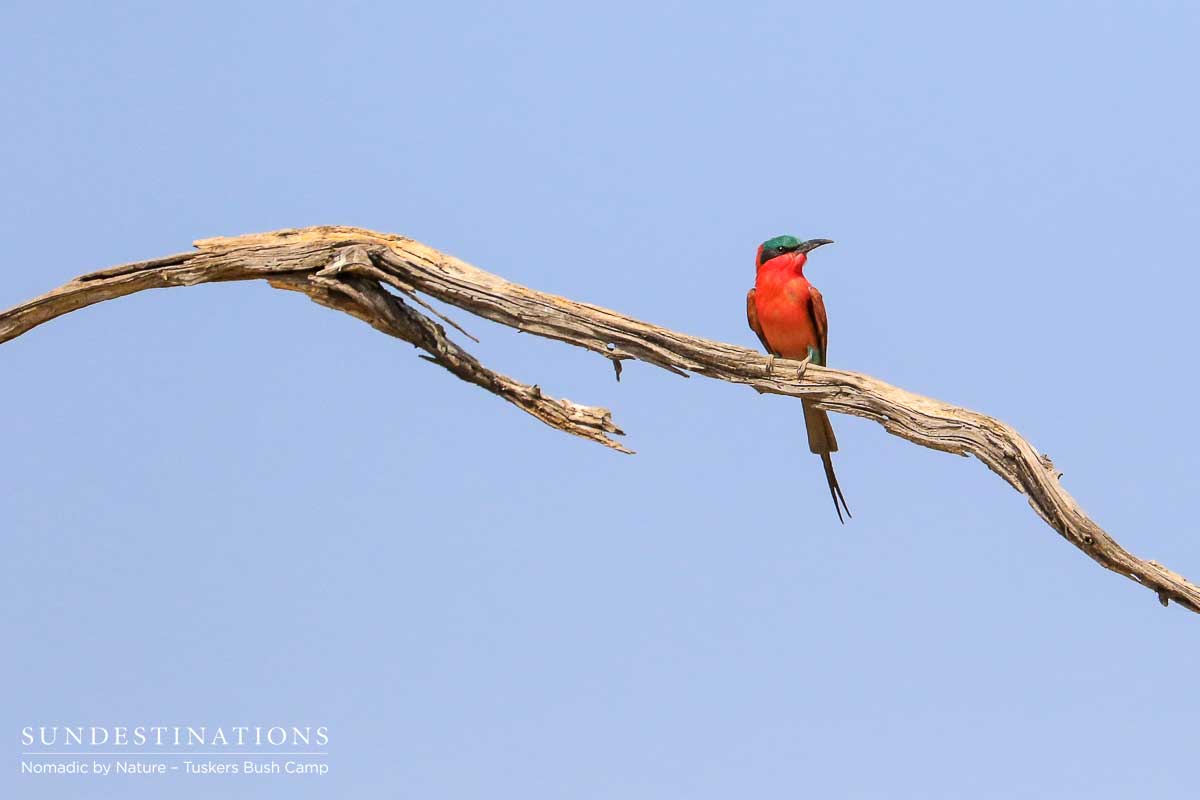
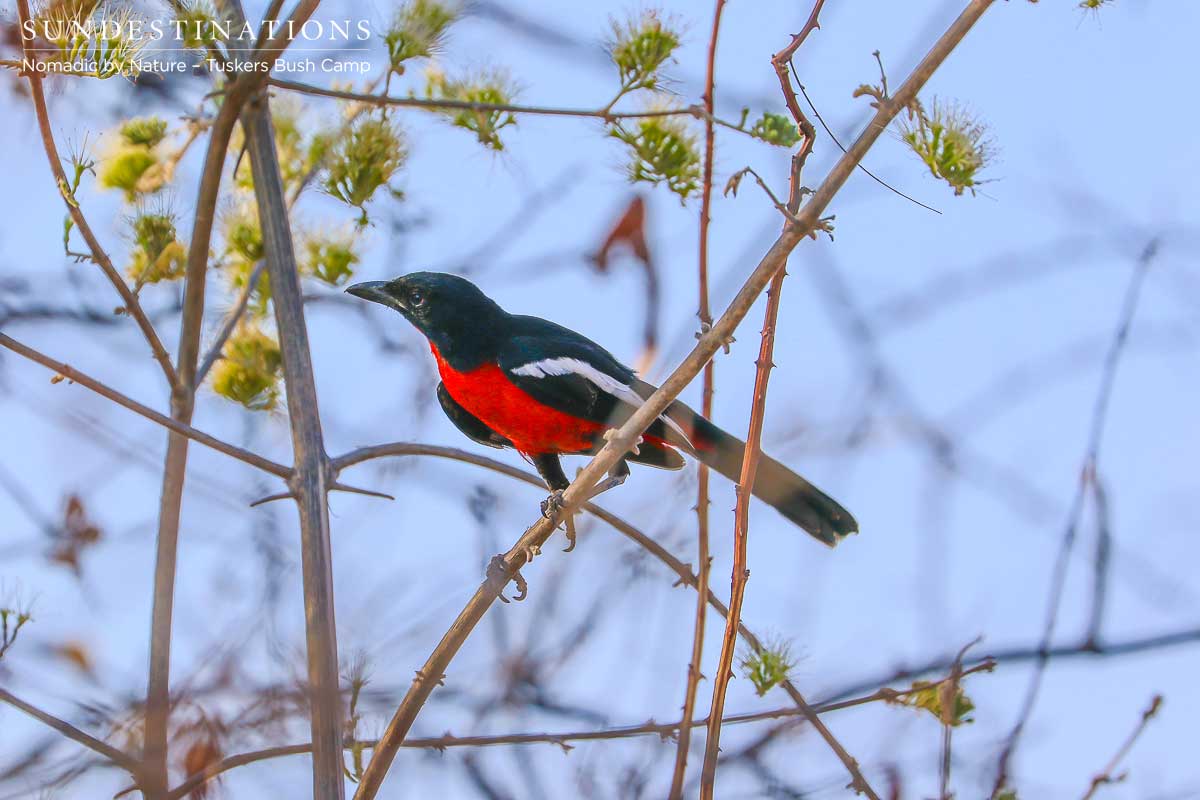
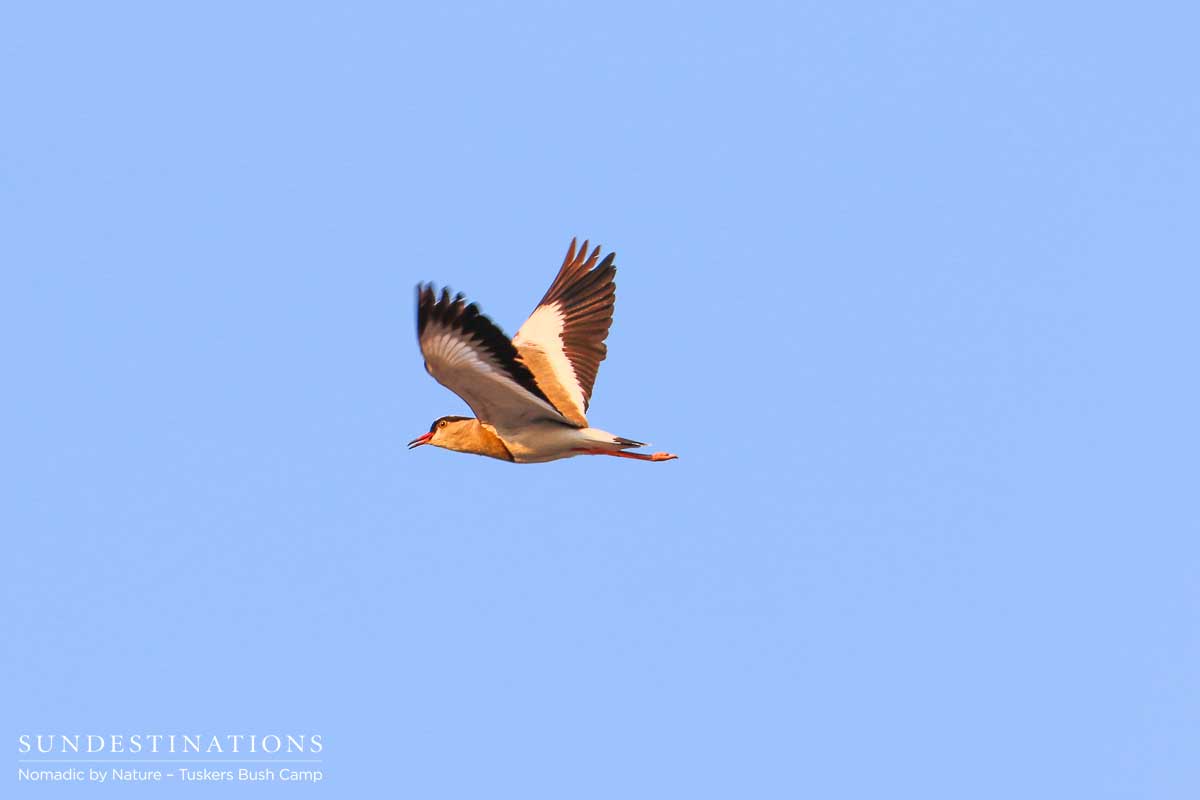
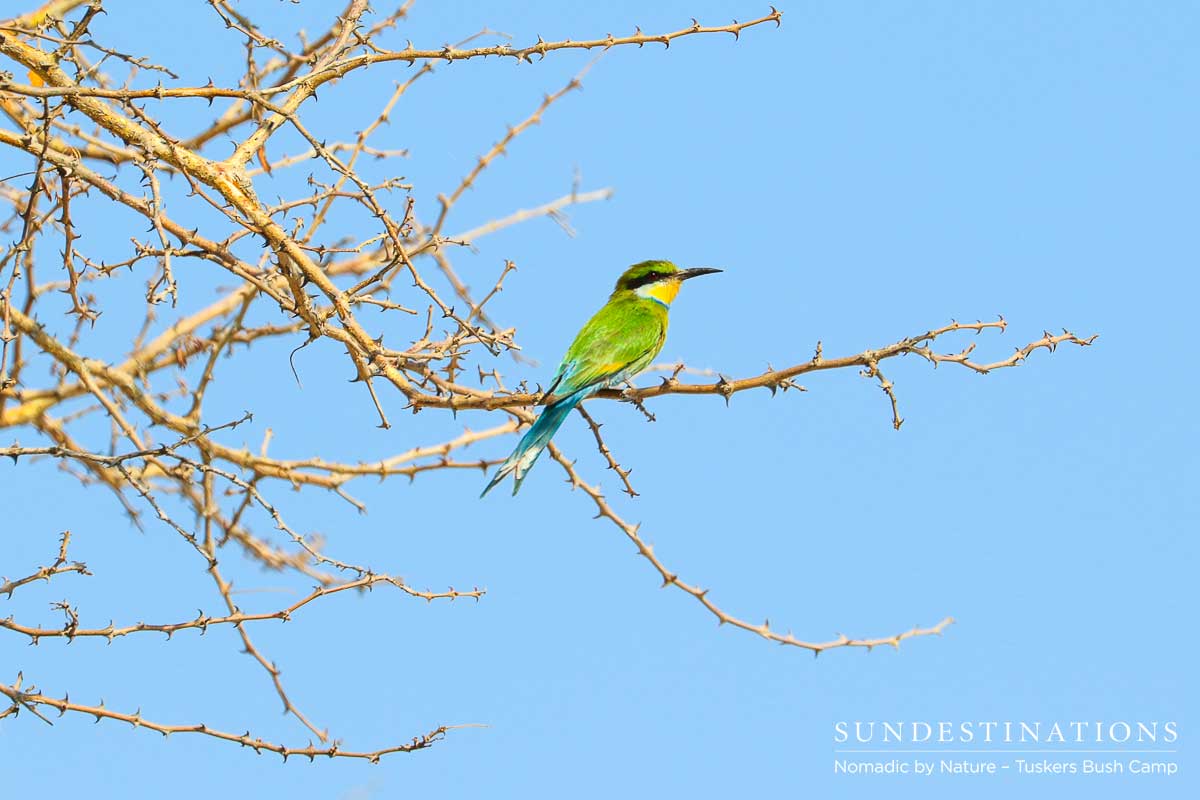
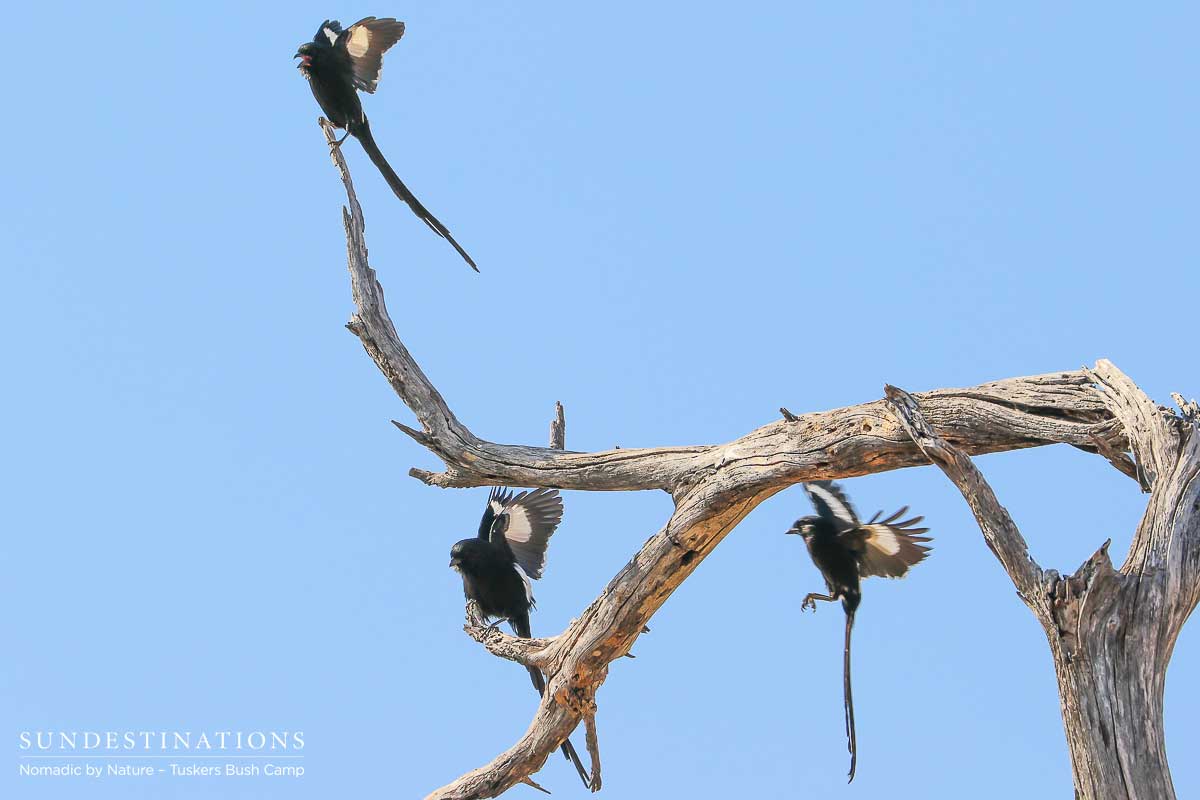
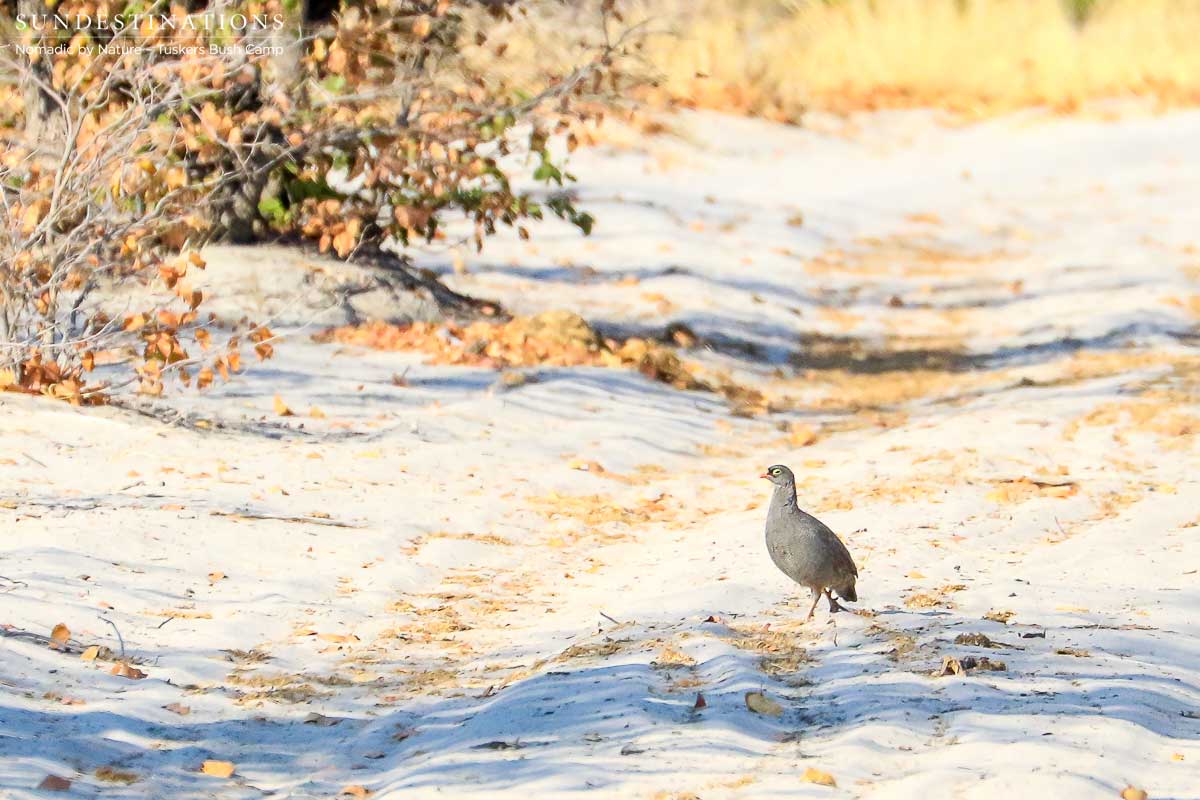
Leave a Comment